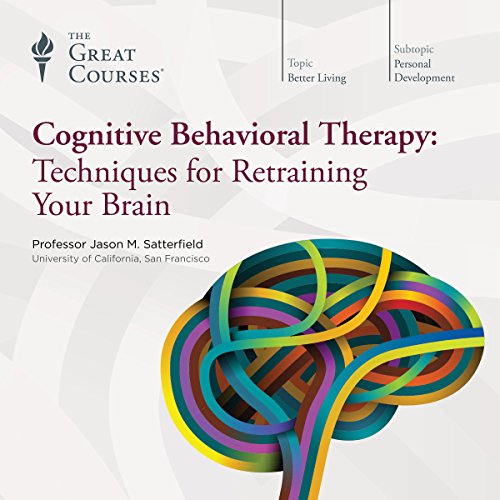
Why is it so hard to lose weight, stop smoking, or establish healthy habits? Why do couples argue about the same issues over and over? Why do so many people lie awake at night, stricken with worry and anxiety? Why is it so difficult to come to terms with a loved one’s death, even if it’s after a long illness?
The answers to these questions – and the path to lasting change in your life – lie in cognitive behavioral therapy (CBT), a well-tested collection of practical techniques for managing moods and modifying undesirable behaviors through self-awareness, critical analysis, and goal-oriented change. CBT illuminates the links between thoughts, emotions, behaviors, and physical health and uses those connections to develop concrete plans for self-improvement. Built on a solid foundation of neurological and behavioral research, CBT is an approach almost anyone can use for promoting greater mental health and improving quality of life.
In 24 engaging half-hour lectures, you’ll build a robust and effective self-improvement toolkit with the expert guidance of Professor Satterfield of the University of California, San Francisco. You will explore CBT’s roots in Socratic and stoic philosophy, build a toolkit of CBT techniques, and hear about the latest research about its outcomes. Additionally this intriguing and practical course allows you to take on the role of medical student, physician, psychologist, and patient.
Throughout the course you’ll explore issues that cause people to seek out therapy. In some cases you’ll get to hear Dr. Satterfield working with a patient, and in others you’ll be delving into research to find what causes issues and how CBT helps to resolve them.
Everyone has something about their life that they would like to improve. With the tools in CBT and the desire to make your situation better, you can create lasting change in your life.
